Open on Evenings & Holidays! Extended And Flexible Hours!
* DNA Testing for Immigration
* Paternity Testing
* Prenatal Testing
* Deceased Paternity
* Forensic Testing & Much More!
Open on Evenings & Holidays! Extended And Flexible Hours!
* DNA Testing for Immigration
* Paternity Testing
* Prenatal Testing
* Deceased Paternity
* Forensic Testing & Much More!
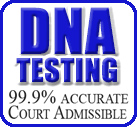
AB DNA Testing Services
63-11 Queens Boulevard
Woodside NY 11377
Phone: 718-701-0292
Fax: 718-458-9700
Monday: 10:00 am – 8:00 pm
Tuesday: 10:00 am – 2:00 pm
Wednesday: 10:00 am – 8:00 pm
Thursday: 10:00 am – 2:00 pm
Friday: 10:00 am – 8:00 pm
Saturday: Closed
Sunday: Closed
* After Hours: Weekends by appointment only *
We offer New York’s BEST AND MOST AFFORDABLE DNA TESTING with a full range of services to verify family relationships.
We specialize in the following types of DNA tests:
• Paternity • Prenatal • Maternity • Grand-parenting • Sibling Relationship • Biological Relationship Studies • Twin Studies • Deceased Paternity • Forensic Testing • Child Identity Testing • Family Tree and Genealogy Testing
* EVEN LOWER PRICE THAN HOME DNA KITS.
* NO HIDDEN COSTS – Collection kits, photography, and fingerprinting all included.
* 99.9% (OR GREATER) ACCURACY.
* FINAL RESULTS ARE PRESENTED IN A NOTARIZED DOCUMENT IN A CLEAR AND CONCISE FORM.
* ALL RESULTS ARE COURT ADMISSIBLE.
* OVER 15 YEARS EXPERIENCE.
* NO REFERRALS NECESSARY!
* FAST AND PAINLESS SAMPLE COLLECTIONS, USING BUCCAL (Mouth) SWABS.
* SPANISH, PORTUGUESE, FRENCH AND CREOLE SPOKEN.
* PLEASE SEE TRANSLATIONS OF OUR SERVICES IN: SPANISH, BENGALI, URDU, CHINESE AND NEPALESE!
* OPEN SATURDAYS & Sundays!
Located In Woodside Queens, easily reachable from all boroughs (Queens, Manhattan, Brooklyn, Bronx and Staten Island), Westchester, Nassau and Suffolk. 4 Blocks from No. 7 Train (Flushing Line) and Long Island Railroad.
DNA TESTING AVAILABLE FOR BAHAMIAN CITIZENSHIP
ALL SAMPLES ARE COLLECTED IN THE BAHAMAS AND TESTED IN THE US AT AN ACCREDITED LABORATORY. CALL NOW.
Call us. We have found that in many cases, our personalized service can overturn your denial. We will call the passport office or immigration dept. for you and plead your case over phone verbally.
90% of time they will revoke your denial, as long as you get the required information to them quickly.
AB DNA TESTING SERVICES
63-11 Queens Boulevard
Woodside NY 11377
AB DNA Testing Services © |
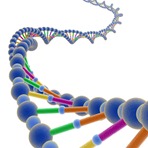 |
63-11 Queens Boulevard We are open on evenings & holidays! |
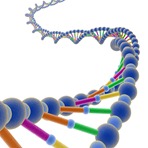 |
AB DNA Testing Services © offers a full range of DNA testing services using the most highly qualified and Certified DNA testing laboratories in the country.
For New York residents, DNA testing has to be performed by a physician or legal entity (court, USCIS, US Embassy or Consulate).
AB DNA TESTING SERVICES © offers a “One-Stop Shopping” service since we have a doctor on the premises who will perform the test. We are open 7 days a week, including weekends.
Prenatal DNA Testing • Immigration DNA Testing • Paternity • Maternity • Grand-parenting • Sibling Relationships • Biological Relationships • Twin Studies • Deceased Paternity • Forensic Testing • Child Identity Testing • Family Tree and Genealogy Testing
Other doctors will charge a fee just for the office visit. We do not charge a fee for our on premises doctor visit. Save money and call for an appointment today!
AB DNA Testing Services ©
718-701-0292
DNA TESTING AVAILABLE FOR BAHAMIAN CITIZENSHIP
ALL SAMPLES ARE COLLECTED IN THE BAHAMAS AND TESTED IN THE US AT AN ACCREDITED LABORATORY. CALL NOW.
What advancements does the future of DNA testing hold? The realm of DNA testing has evolved dramatically since the discovery of the DNA double helix in 1953. As we peer into the future, we can expect this field to continue its rapid evolution, transforming not just medicine and health care, but society at large. This blog post will explore the potential advancements and applications of DNA testing that may soon become integral parts of our lives.
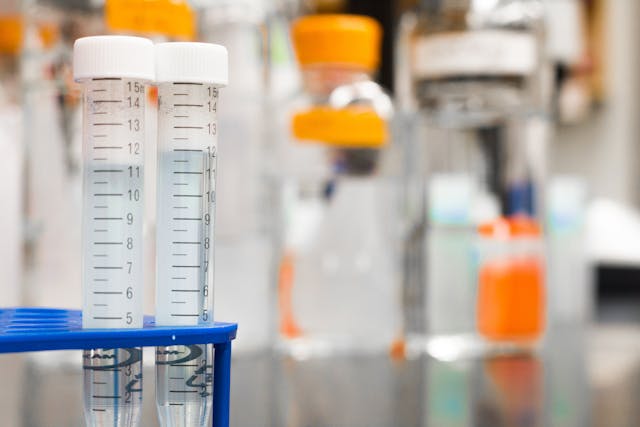
DNA testing is expected to become even more integral to the practice of precision medicine. This approach tailors medical treatment to the individual characteristics of each patient’s genetic profile. With advancements in DNA sequencing technologies, predicting and preventing diseases by analyzing genetic markers could become routine practice for medical professionals.
Techniques such as CRISPR-Cas9, which allow for precise, directed changes to an organism’s DNA, are on the cusp of creating a revolution in genetic medicine. Future DNA testing may routinely involve not just reading genetic codes but also editing them to prevent hereditary diseases before they can take hold.
In the future, DNA testing could be expanded in newborn screening programs to include a broader array of genetic conditions. This will enable early intervention and treatment, potentially reducing the impact of or even preventing the onset of genetic diseases.
Advances in DNA testing could enable a comprehensive analysis of an infant’s propensity for diseases later in life, allowing parents and doctors to plan for and manage future health risks from day one.
As direct-to-consumer (DTC) DNA testing kits become more advanced and accessible, they will empower individuals to take charge of their health by providing more detailed and accurate genetic information. Consumers will be able to receive data on their genetic predisposition to a wide range of conditions and traits.
The rise of DTC DNA testing will also raise important questions about data privacy and ethics. It will become imperative for companies and regulators to address these concerns and for consumers to be aware of how their genetic information is used and shared.
One of the most intriguing prospects of DNA testing is its potential to crack the code of aging. Research focused on the genetic markers associated with longevity could lead to DNA tests that provide insights into how to extend the human healthspan.
In addition to providing insights, future DNA testing could also be coupled with genetic therapies designed to slow down or reverse aspects of the aging process, opening up the potential for a healthier, longer life.
The advancements in DNA testing will inevitably lead to broader societal implications. These include changes in insurance policies, healthcare accessibility, and even the legal system, as genetic information becomes more readily available.
As DNA testing becomes more prevalent, laws and regulations will need to evolve to protect individuals’ genetic privacy and prevent genetic discrimination in employment, insurance, and beyond.
At AB DNA Testing Services, we are at the forefront of these emerging trends, offering the latest in DNA testing services to provide you with the most accurate and insightful genetic information.
Are you ready to embrace the future of DNA testing? Reach out to us and explore what your genes can reveal:
AB DNA Testing Services ©
718-701-0292
We are your partners in uncovering the secrets held within your DNA, guiding you toward a future where your genetic information enables a healthier, more informed life.
There are many reasons someone may desire a maternity or paternity test. These are DNA tests used to confirm a child’s biological parents, either for personal knowledge or for legal reasons. These DNA tests are extremely accurate.
We typically perform maternity tests for people who need a legal confirmation of maternity for immigration, citizenship, or passport purposes. This test can also be performed for other legal reasons, such as confirmation of Native American Tribal
Membership. However, we also perform maternity tests for other reasons, including for non-legal reasons. An example of a maternity test performed for a non-legal reason would be a grown child who, after being adopted, wants to confirm who their biological mother is. Or perhaps there is a mix-up in the maternity ward at a hospital and the doctors need to confirm the mother of a child. In this case, they would seek a maternity test.
Another reason someone might seek a maternity test is in the case of surrogacy. Surrogacy is the process in which a man and woman use in-vitro fertilization to have their fertilized embryos placed in another woman’s uterus so that she will grow and birth the child for that couple. This process does not always work, and, in some cases, the surrogate mother will become pregnant with her own child instead. A maternity test would be needed to confirm if the child belongs to the couple or the surrogate mother.
As with maternity tests, most paternity tests at our laboratory are performed for immigration purposes. However, we also perform many paternity tests to establish legal parenthood. These paternity tests can help the court decide about things such as custody, visitation rights, and mandatory payment of child support. Sometimes we perform paternity tests because a mother and/or her child would simply like to know who the father is for their own personal information.
Whatever your reason for seeking either a maternity or paternity test, it is important to know how these tests work.
When we perform a maternity or paternity test, we usually collect buccal cells (cheek cells) from inside a person’s cheek using a cheek swab made of cotton. We will need swab samples from both the child and the alleged father and/or mother to be tested. Once we have the cell samples, we are able to perform the DNA test for paternity or maternity.
Each person has a unique set of DNA. All of a person’s DNA put together is called a genome. When people are related, their genomes are more similar to each other than when they are not related. When we compare the genomes of multiple people, we are able to see how similar the genomes are. This comparison is called DNA profiling or Genetic Fingerprinting. This genome comparison will give a percentage result.
This percentage represents the probability that the two people- in this case a child and parent- are related. If the probability is 0% then they are not related. If they are related, the probability may be as high as 99.99%.
Do you want to confirm paternity or maternity? Contact us today at 718-701-0292 to schedule a paternity test or maternity test appointment with the best DNA testing lab in NYC.
References:
Forensic DNA testing is the testing of DNA samples for the purpose of solving crimes. Many crime shows depict forensic DNA testing with the capturing of different samples, such as blood and hair, from a crime scene. Is this an accurate depiction? Well, these samples can be used for DNA testing, but this isn’t the whole story. Forensic DNA testing can actually be done with a variety of DNA samples, and it turns out that this type of DNA testing is extremely accurate. Courts of law and other legal entities trust the accuracy of forensic DNA testing to the point that they will convict someone of a crime based entirely on DNA evidence.
Before we can test the DNA samples to solve a crime, we must obtain the DNA samples. DNA samples can come from a person’s hair, bodily fluids, skin cells, fingernails, toenails, and bones. It is surprising how many places one can find these samples. Such DNA samples can be found on clothing, sheets, towels, silverware, drinking glasses, used tissues, condoms, eye contacts, band-aids, cigarettes, gloves, tools, abandoned weapons, and more.
To collect the DNA samples, an investigator will go to the crime scene and gather these samples by taking the physical item with them in a sterile container, or by swabbing an item that may contain a person’s bodily fluid, such as a sample of blood or a sweaty door handle. The investigators will work carefully to ensure that their own DNA does not contaminate these valuable samples.
Once the DNA sample is collected, we must compare it to the DNA sample of a crime suspect. The DNA of both samples can be compared for relatedness in multiple ways:
This method of DNA testing is called DNA Profiling or DNA Fingerprinting. With this method, we take the samples of DNA found in the nucleus of a cell from the suspect and the crime sample and compare them to each other. The genomes- all of a person’s DNA put together- are compared side by side. The more similar the samples, the more likely the suspect is the person who committed the crime.
This method compares the DNA from the mitochondria of the suspect and the crime scene sample. Mitochondria are present in almost every cell in the body and help the cell produce energy to survive. We are able to use the DNA from this part of the cell for forensic investigations.
When the suspect is male, we are able to compare the Y chromosome of the suspect with that of the DNA from the crime scene. This method does not work with female suspects since females do not have a Y chromosome.
DNA testing is not only use to convict criminals in court, but also to exonerate innocent suspects as well. Forensic DNA testing can also be used for forensic paternity cases in which paternity must be proven, either for missing person identification or for proving rape or incest cases when pregnancy results. Many alleged criminals have been freed from prison, and even death row, due to their proven innocence from Forensic DNA testing.
If you are interested in Forensic DNA testing, contact us today to schedule a DNA test appointment with the best DNA testing lab in NYC.
References:
https://en.wikipedia.org/wiki/DNA_profiling
The Molecules in DNA are passed down through generations, DNA strands are embedded with coded information which is responsible for an individual’s characteristics and habits. The DNA sequence differs from person to person much like fingerprints. The minor variations in the DNA are what determine the line of generations; DNA is present in every cell of the body and can be taken from the lining of the skin to follicles of hair for genotyping.
Fun Fact: Human and chimpanzee DNA is 98% similar, whereas human and cabbage share 40 to 50 % of DNA. DNA research dates back to the 1800s; Friedrich Miescher first discovered nucleic acid in our white blood cells. Later the molecules that make up the DNA was discovered along with the discovery of RNA (ribonucleic acid).
DNA is present in all cells, and despite variations, cell maintains the genetic code. This property of DNA leads Cricks and Watson’s discovery of the double helix structure of the deoxyribonucleic acid (DNA). This was a milestone in the history of biological science and lead to an understanding of how genes control the chemical processes. DNA is intriguing the things it can discover are beyond anything biology has ever seen, here are five awesome things a DNA test can do.
Scientists are working on understanding the ability of DNA to either gain or prevent weight gain. Why some people gain 10 pounds by eating the same things that others don’t, the answer lies in our DNA. Scientists are working on gene variants that might give humans the opportunity to negate obesity, studies conducted on rats have shown the regulation of fat is controlled by the genetic makeup of our DNA. No exact relationship between exercise and DNA diet has been derived yet, but scientists are working on discovering how obese genes can be modified through DNA.
When expecting, the main concern for to-be parents is the health of their child. DNA testing can determine whether the child has any abnormal chromosomes that can cause genetic disorders. This is done by taking a sample of blood from the mother and saliva from the father. Research is being carried out to use DNA testing in determining whether the child will have any disorders such as autism.
A DNA test can determine genetic ethnicity, and this can help you find your relatives through generations gone. A DNA test can find out thousands of people alive today that are related to you. For this, your DNA is compared to other DNA samples from around the world which results in a family tree map.
DNA testing is one of the most powerful tools in determining the time of existence and the true identity of an ancient species of animals or a buried skeleton. It helps find out who the tooth or bones that are often found during archaeology excursions belong to. DNA testing has facilitated the solving of many un-earthed mysteries of archaeology. Hair, traces of blood or skin left at the crime scene can narrow done the scope of any investigation, and the odd presence of someone’s DNA and the person is not supposed to be there can lead to catching the culprit. DNA is an excellent source of finding the assailant and relieving innocents of unfair imprisonment.
If diabetes runs in the family, there is a very strong chance that you too might fall prey to it in the future. However, to stay one step ahead, it will not hurt to get your DNA tested to find out whether or not you can or will show symptoms of a hereditary disease. And for that you should always rely on the best DNA testing center NYC. It may sound frightening, but knowing a bitter truth is always right than a sweet lie. The following powerful reasons will tell why you should get your DNA tested as soon as you can.
Advanced medical research has confirmed that the risk of inheriting a genetic disease is very real and there are millions of people who really can’t do anything about it. But with this being said, alternatives and treatment associated with hereditary diseases have become a possibility as well. We just need to know whether or not we have been affected by a family health problem. For instance, if a family has a history of diabetes, the chances of inheriting it are more in next generation. You can get all the necessary information associated with family health through a DNA test via a DNA testing center in NYC.
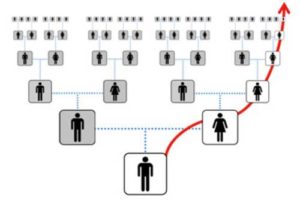 Congenital diseases can remain silent for the longest time – specifically metabolic and autoimmune problems. These diseases do not show any symptoms until you reach a certain age, which is indeed terrifying. It would be an unpleasant and a shattering experience to learn that you have an auto immune disease at the age of 35. For instance, celiac disease remains unnoticed until any severe health issues occur i.e. depression, anemia or worst – colon cancer. Unfortunately, it often gets too late until the person learns about his condition.
Congenital diseases can remain silent for the longest time – specifically metabolic and autoimmune problems. These diseases do not show any symptoms until you reach a certain age, which is indeed terrifying. It would be an unpleasant and a shattering experience to learn that you have an auto immune disease at the age of 35. For instance, celiac disease remains unnoticed until any severe health issues occur i.e. depression, anemia or worst – colon cancer. Unfortunately, it often gets too late until the person learns about his condition.
Knowing the truth about your health may be a bitter experience, but it can save you. You should know everything associated with your health to live a quality life. The DNA test can help make the right decision. For instance, if your family has a history of cardiovascular disease, you may be able to reduce your chances of developing severe symptoms by resorting to an active and healthy lifestyle early on. You may quit smoking, you may not drink that much and you may not eat unhealthy, processed foods.
You can maintain a quality life and healthy family. You just need to find out what your DNA indicates. If it highlights the risk of Crohn’s disease in your family and you have a mutation – how can you stay unaffected? You can limit the chances of it by avoiding stress and developing healthy eating habits. Moreover, after knowing your DNA results and living a healthy lifestyle you will be able to prevent your children to be affected by it.
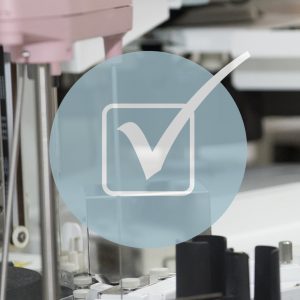 Getting a DNA test performed is surely a major investment to maintain a healthy life. Some diseases become strenuous to treat after reaching to a certain level, but with the help of DNA test you might be able to treat them at an early stage or in most cases, you can take precautions to remain unaffected.
Getting a DNA test performed is surely a major investment to maintain a healthy life. Some diseases become strenuous to treat after reaching to a certain level, but with the help of DNA test you might be able to treat them at an early stage or in most cases, you can take precautions to remain unaffected.
DNA tests for basic family diseases have become a necessity for the modern society. The technology exists. It depends on how much you want to take an advantage of it and to live a quality life. Take out some time, schedule an appointment and get your DNA tested with the most reliable DNA testing center in New York City.
DNA testing has proved to be a major technological and scientific advancement. It has been used as an effective tool in determining ancestral and familial links among different groups of people. In addition to that, it has also been useful in the field of agriculture. Through the genetic marks found in every living organism, every individual stands out from its species. When testing your DNA, you have two options: to get it done through a certified testing center or do it at home with the help of DIY DNA testing kits. Both start with sample collection. Buccal swabbing is considered as a good source of sample collection.
When using a DIY kit, you should put the sample in the envelope that came with the kit. Fill in all the necessary information and send it to a laboratory of your choice for analysis. After three to seven working days, you may go and collect the results personally or have them mailed to your address. Through all these steps, it should be stressed that sample collection plays a key role in the accuracy of the DNA test, so try your best to avoid specimen contamination. Also, be careful with the testing center you choose. It is a good idea to do some research before to determine its reputation and credibility.
Go through customer feedback, ratings and reviews to get an idea. When assessing DNA (or any other genetic test), remember that every person has two different sets of genetic markers, one from their mother and one from their father. If you are assessing a paternity test, you should first look at what you and your mom have in common. The remaining genetic marker in the child must come directly from their biological dad. If the father has that same genetic marker, he is not excluded. However, if the genetic marker is absent, he is excluded.
For instance, a DNA test result appears with the genetic marker and the person tested as:
Mother – 3 4
Alleged Father – 7 6
Child – 3 6
Note that the mother takes her genetic markers of 3 and 4 from her biological parents. When we look at the child, he shares with his mother the genetic marker 3, which he inherited from her. The number 6 in the child must be from the biological father since the mother doesn’t have that genetic marker. Note that the alleged father has the number 6 genetic marker, a number that is required from the biological father. Thus, the alleged father cannot yet be charted out from the test because his genetic marker includes the number 6.
If, in the example, the alleged father had a genetic marker of 2 8, he would have been excluded from the paternity test on the grounds that he does not have the number 6.
A legally admissible DNA paternity test is required to establish paternity, receive child support or get custody of a child in New York. For paternity testing, photo identification of all tested adults is required. The samples are shipped to a DNA testing center and collected by impartial third parties and strict chain of custody is maintained. The DNA samples will be analyzed and compared in a DNA testing lab.
Useful for all legal purposes including child custody and support. All parties must provide verifiable proof of identity. DNA paternity test performed by paternity testing lab authorized professionals.
Notarized legal documents are issued according to AABB Parentage Testing Committee accreditation standards to include full disclosure of DNA paternity test results.
Not useful for legal purposes because it is not possible to verify who has been tested. Report clearly marked “identification not verified” and it will not be accepted as evidence of paternity in family court.
A DNA test is easy and painless. It can even be performed on a newborn. The child (or children) and father will submit a DNA sample. A DNA tech will collect a small DNA sample by swabbing the inside of each person’s cheek. After collection, the samples are submitted to a DNA testing lab and/or DNA testing doctor.
DNA Testing can be performed at DNA testing centers. It is important to make sure that you choose a testing center that will provide confidentiality of information and of the DNA samples you provide.
When you are ready for DNA Paternity Testing, please call us at 718-701-0292 to schedule an appointment with the top DNA testing center in NYC.
There are many reasons to obtain a DNT test. Often times, the need for this test is for paternity matters. If you need to know if someone is a child’s father or there is another issue with understanding someone’s DNA, it is essential that you work closely with a DNT testing center to get the information you need. However, in some cases, this test will not apply to legal matters. It can be confusing, but there are a few things you need to know.
Is the Test Legally Binding?
Whether or not the paternity test is admissible in court depends on a variety of factors. Generally, a reliable test is essential especially when there is a need to prove the child’s DNA for social security matters, child support, or custody. If you’ve taken an at-home paternity test, the results you have obtained may in fact be accurate. However, there is no way for the court to know it was conducted honestly.
If you need to obtain a paternity test for legal matters, like any of the instances listed above, start with a legal test. There is no benefit in purchasing an at-home test for this. Rather, schedule the appointments necessary with a testing center and then come in for it. It may be necessary to legally require the other person to appear for the test, depending on what the circumstances are. However, this process is not always necessary.
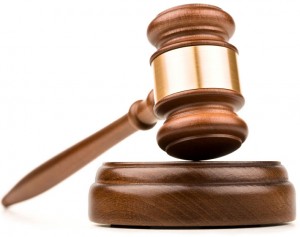 A legal and personal DNA test are very different. If you need a legally binding test, only turn to a DNA testing center that can offer you one (and be sure the location is well respected!) The difference in these two tests is simple. In a personal DNA test, you obtain the DNA samples and send them in. With a legal DNA test, on the other hand, the testing center collects the DNA samples and then can verify they are authentic for the court system.
A legal and personal DNA test are very different. If you need a legally binding test, only turn to a DNA testing center that can offer you one (and be sure the location is well respected!) The difference in these two tests is simple. In a personal DNA test, you obtain the DNA samples and send them in. With a legal DNA test, on the other hand, the testing center collects the DNA samples and then can verify they are authentic for the court system.
Whenever there is a need to obtain a legal paternity test, it is essential to turn to the right provider. In this situation, it is best to start with a legal paternity test and avoid spending money on an at-home test that you will need to duplicate anyway. The good news is you can make an appointment with our office to get started. We’re a leading DNA testing center in New York that you can count on.
There are many reason why you may need to get your DNA tested. They could include personal reasons as well as legal reasons. Some of the legal uses for DNA tests include proving relationship status for immigration proceedings and determining who the father of a child is for custody, child support, and inheritance purposes. There are a few important things you should know about DNA testing in New York before you get one.
The New York State Department of Health regulates DNA testing in New York. State regulations mandate that only NYSDOH-accredited laboratories can perform DNA tests for residents in the state. And DNA tests can only be performed at the request of an authorized agent such as a doctor or lawyer. New York DNA testing laboratories are also required to follow a state-regulated chain of custody in all DNA testing procedures, whether they are going to be used for legal purposes or personal ones. This is why it’s so important to make sure you are using an accredited and fully certified laboratory. AABB DNA Testing is one of the best options for DNA testing in New York.
AABB DNA Testing is accredited by the NYSDOH and only uses laboratories certified by the American Association of Blood Banks. All DNA tests performed by AABB DNA Testing are court admissible and provided on notarized forms. AABB DNA tests have an accuracy of 99.9% or greater for all paternity and family relationship tests.
AABB DNA Testing offers ten years of experience and has thousands of satisfied clients who have used their results to prove paternity, family relationships for immigration proceedings, and more. With some of the most competitive rates in New York, AABB DNA Testing is the best company to use for your DNA test. Contact us today to schedule an appointment with the top DNA testing center in NYC.
There are many different DNA testing companies in New York, and it can be difficult to determine which one is the best for your needs. The kind of DNA testing company you should use depends mainly on what you will need the DNA test for. If you only need a DNA test for personal use, then you won’t necessarily need to work with a company that provides DNA tests. Legal DNA tests are slightly more expensive than those for personal use, but they are admissible in court for purposes ranging from determining paternity for child custody and other reasons to proving relationship status for immigration proceedings. But regardless of what your DNA test is being used for, there are a number of requirements that New York State regulations mandate.
Accreditation and other requirements
 In New York State, all DNA tests have to be performed by a testing laboratory that has been accredited by the New York State Department of Health (NYSDOH). In addition, DNA tests can only be performed at the request of an authorizing agent. Authorizing agents may be a doctor or a lawyer. Additionally, you should try to only work with DNA testing laboratories that are accredited by the AABB.
In New York State, all DNA tests have to be performed by a testing laboratory that has been accredited by the New York State Department of Health (NYSDOH). In addition, DNA tests can only be performed at the request of an authorizing agent. Authorizing agents may be a doctor or a lawyer. Additionally, you should try to only work with DNA testing laboratories that are accredited by the AABB.
Furthermore, the collection of the DNA sample is required to be witnessed by a third party who has no personal relationship with the person being tested or interest in the outcome of the test (called a “collector.”) The collector can be a doctor, lawyer, or employee of a DNA testing center. This process is essentially the same for personal and court-ordered DNA tests.
DNA testing at AABB
AABB is the most reliable and trusted DNA testing center in New York. We are fully accredited by the NYSDOH and have ten years of experience providing outstanding results for paternity, immigration, and personal DNA tests. Contact us today to schedule an appointment with the top DNA testing center in NYC.